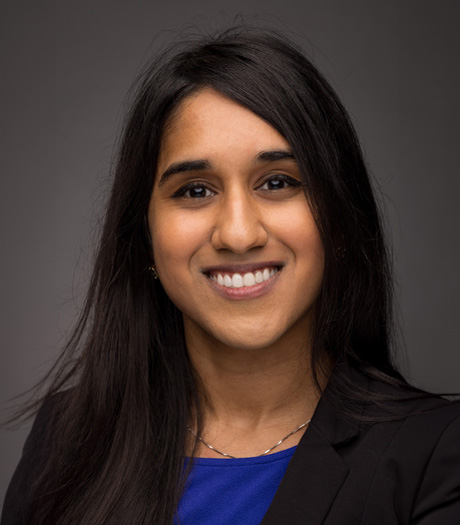Diabetes Mellitus is a common chronic condition that affects the body’s inability to make enough insulin or use it as well as it should. More than 37 million Americans have either Type 1 (T1DM) or Type 2 (T2DM) diabetes while millions more remain undiagnosed, and its rate is increasing among children, teens, and young adults.
Often referred to as the “blame and shame” disease, more than half of those with diabetes report experiencing social stigma and discrimination because of misconceptions about the condition

As a nutrition counselor who met with patients with diabetes before coming to Geisel, fourth-year medical student Mariana Henry ’24 saw the effects of stigma first-hand. A preponderance of patients felt their condition was perceived as either a character flaw, a lack of self-control and failure to responsibly control weight, a burden on the healthcare system or all three.
Faculty at Geisel are cognizant of this perception about diabetes, Henry notes. Research has shown that medical students may also have a bias toward patients with diabetes. In one study, medical students had perceptions that diabetes was primarily from an unhealthy diet and sedentary lifestyle, thus neglecting other factors out of patient’s control such as genetics.
“This is a huge problem,” she says. “I have found that people who stigmatized diabetes mostly likely did so due to misinformation about what causes diabetes, and they often do not understand how much work it takes for people with diabetes to stay alive.”
During her Medical Student Grand Rounds presentation, Stigma Towards Diabetes is Rampant: What Can Doctors Do Better? Henry discussed this problem, and the changes physicians can make when treating this patient population.
“People make jokes about diabetes, such as, ‘if I eat this donut, I’ll get diabetes.’ There are also many examples of this in the media and all are based on misconceptions,” she says. “Part of my talk included information about the daily lives of those with diabetes in order to improve the community’s understanding of the condition, as well as to bring awareness to this issue of bias and stigma.”
Citing a sampling of physicians in an anonymous survey, Henry found moderate levels of bias towards patients with T2DM. While more than 80 percent felt prepared to treat patients with T2DM, one-third reported being repulsed and nearly half saw them as lacking motivation, non-compliant with treatment, and witnessed colleagues in their field making negative comments. The highest level of bias was reserved for patients with obesity.
The blame and shame stigma affects the mental state of those with diabetes leading to depression, social isolation, and a hesitancy to further treat the condition and or its complications. It can also lead to binge eating and other eating disorders. Parents of children with diabetes are often blamed for causing their child’s diabetes and women with gestational diabetes may feel either they did something wrong, or they won’t be able to have a healthy pregnancy. Consequences of stigma include guilt, embarrassment, diabetes burnout, and depression, which is nearly three times higher in those with T2DM.
Discriminatory remarks from public officials who question taking care of people, “who sit at home, eat poorly, and get diabetes,” also harms public and financial support for diabetes care and research, and distracts from contributing factors such as food insecurity that leads to poor choices, and health inequity.
Henry, who earned a master of public health in chronic disease epidemiology, says that the language physicians and medical students use can stem bias and discrimination. For example, language changes that can be made include diabetic person → person with diabetes; she failed metformin → metformin was not adequate to reach her A1C goal; refused → declined; regimen, rules → plan, choices; controlled/uncontrolled, well controlled/poorly controlled → manage.
“I think that educating yourself about the topic and understanding what patients with diabetes go through is important,” she says. “I do feel strongly about this topic and believe that doctors can be a force in fixing this attitude. We are in a good position to educate ourselves and others, and to help change this situation by being aware of stigma so that we may provide compassionate, judgement-free care to those with diabetes.”